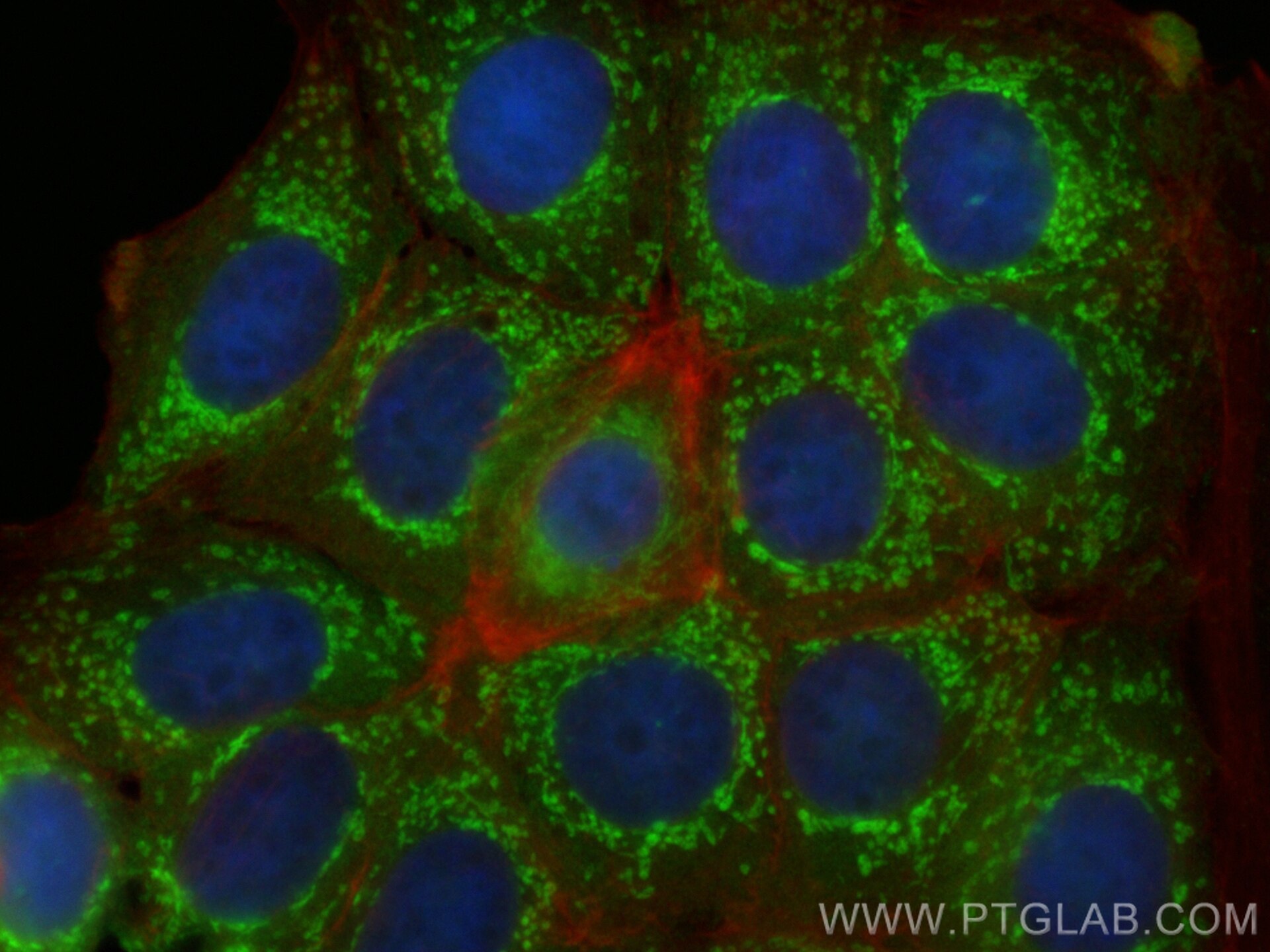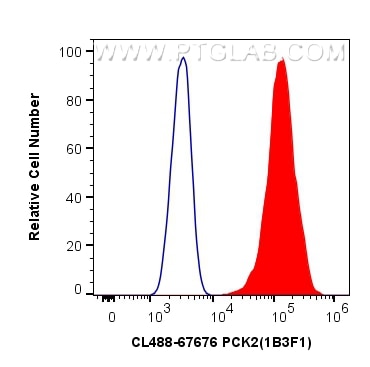Validation Data Gallery
Tested Applications
| Positive IF/ICC detected in | MCF-7 cells |
| Positive FC (Intra) detected in | HeLa cells |
Recommended dilution
| Application | Dilution |
|---|---|
| Immunofluorescence (IF)/ICC | IF/ICC : 1:50-1:500 |
| Flow Cytometry (FC) (INTRA) | FC (INTRA) : 0.40 ug per 10^6 cells in a 100 µl suspension |
| It is recommended that this reagent should be titrated in each testing system to obtain optimal results. | |
| Sample-dependent, Check data in validation data gallery. | |
Product Information
CL488-67676 targets PCK2 in IF/ICC, FC (Intra) applications and shows reactivity with human, mouse, rat, pig, rabbit samples.
| Tested Reactivity | human, mouse, rat, pig, rabbit |
| Host / Isotype | Mouse / IgG1 |
| Class | Monoclonal |
| Type | Antibody |
| Immunogen | PCK2 fusion protein Ag7021 相同性解析による交差性が予測される生物種 |
| Full Name | phosphoenolpyruvate carboxykinase 2 (mitochondrial) |
| Calculated molecular weight | 71 kDa |
| Observed molecular weight | 68 kDa |
| GenBank accession number | BC001454 |
| Gene Symbol | PCK2 |
| Gene ID (NCBI) | 5106 |
| RRID | AB_3084372 |
| Conjugate | CoraLite® Plus 488 Fluorescent Dye |
| Excitation/Emission maxima wavelengths | 493 nm / 522 nm |
| Form | Liquid |
| Purification Method | Protein G purification |
| UNIPROT ID | Q16822 |
| Storage Buffer | PBS with 50% glycerol, 0.05% Proclin300, 0.5% BSA , pH 7.3 |
| Storage Conditions | Store at -20°C. Avoid exposure to light. Stable for one year after shipment. Aliquoting is unnecessary for -20oC storage. |
Background Information
PCK2(phosphoenolpyruvate carboxykinase [GTP], mitochondrial) is also named as PEPCK2, PEPCK-M and belongs to the phosphoenolpyruvate carboxykinase [GTP] family. It catalyses the irreversible conversion of oxaloacetate to phosphoenolpyruvate, an important initial step in hepatic gluconeogenesis. Defects in PCK2 are the cause of mitochondrial phosphoenolpyruvate carboxykinase deficiency (M-PEPCKD). It has 2 isoforms produced by alternative splicing with the molecular weight of 71 kDa and 48 kDa.
Protocols
| Product Specific Protocols | |
|---|---|
| IF protocol for CL Plus 488 PCK2 antibody CL488-67676 | Download protocol |
| FC protocol for CL Plus 488 PCK2 antibody CL488-67676 | Download protocol |
| Standard Protocols | |
|---|---|
| Click here to view our Standard Protocols |

